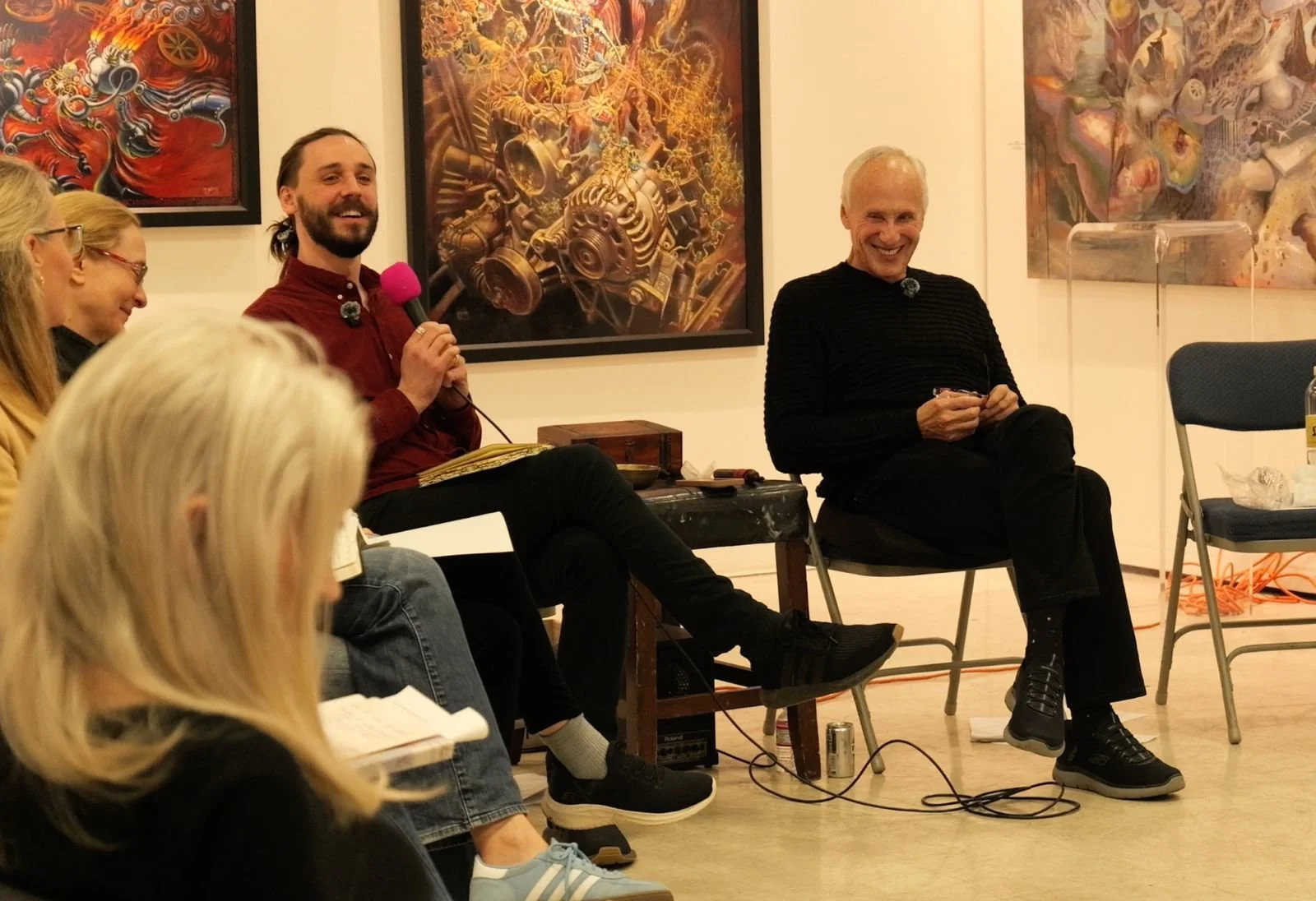How Poetry Changes Your Brain: The Science of Emotional Healing
How Poetry Changes Your Brain
The most compelling evidence for how poetry changes your brain appears in the split-second when language compels the mind to think in shapes, tensions, and associations it did not expect.
Neuroscience now confirms what poets have intuited for centuries — that language arranged with intention can alter emotional tides, reshape neural pathways, and awaken cognitive and affective processes that everyday speech leaves dormant.
This same mechanism underlies poetry’s capacity for emotional healing: by engaging networks involved in memory, regulation, and meaning-making, poetic language invites the mind to reorganize experience in ways that relieve pressure, integrate difficult emotions, and restore a sense of internal coherence.
Coleridge once said that poetry "is the best words in the best order." What makes the order “best” is its capacity to activate a range of pleasurable effects in the brain; one such mechanism is surprise, which is supported by neuroscience research (Wassiliwizky et al., 2017).
Furthermore, poets who read their work best in live settings employ techniques on stage that are similar to those used on the page—especially the strategic use of silence after sharing an image or a metaphor, allowing the listener’s imagination time to connect. They also master rhythm, dynamic control of their voice (including volume, melody, and pace), and intentional body language and gestures.
The Neuroscience Behind Effective Communication
Let’s talk about the science of poetry for a second.
When reading or listening to poetry, our brain is most prone to surprise and delight—and most prone to memory consolidation—at the end of lines, stanzas, and the last word of the poem itself. The pause allows the brain’s prediction circuits to reset. (This is also one of the reasons why end-rhymes are so effective for memory.)
When you speak, you can harness this same mechanism in real-time. Pausing after a critical statement gives the listener’s brain time to move what you just said from temporary working memory into long-term storage.
If you rush your most important words like a waterfall to its plunge pool, they’ll be forgotten, sounding more like this:
Ifyourushyourmostimportantwordslikeawaterfalltoitsplungepool…
Try it yourself: Imagine you’re talking to someone you love. First, say the above phrase (the one with spaces between words) out loud (or in your head) as fast as you possibly can. Next, try it again, but this time slow your speech down, and add deliberate pauses.
Do you feel a difference?
If you did, think about how the best public speakers (and poets) also utilize this same skill. They speak slowly and clearly, and, in turn, we’re moved by their words.
So why do so many of us continue to struggle with communication?
The Art of Poetic Attention
When you speak poetically, you create neural entrainment, where the rhythmic elements of your speech drive the listener's brain to synchronize with yours. In other words, you are creating a shared neurological state.
Think about how these two moments land differently:
Version A (Abstract): “I'm really struggling and don't know what to do.”
Version B (Concrete): “I feel like I'm holding a glass that's already cracked, and any movement might shatter it completely.”
Some poets know this intuitively. Version B isn't just prettier. It's neurologically different. It creates embodiment, visceral feeling, and depth of connection that abstract language can't touch. This is what charisma actually is: communication that engages the full architecture of someone's brain, through concrete image, emotional depth, melody, and rhythm.
You already possess this skill, whether you use it in your writing poetry, in quiet contemplation, or in moments of deep conversation. Now, you can bring this same power into all your speaking.
From Awkward Kid to Professional Communicator: My Journey with Poetic Healing
Let me tell you a little story about how poetry has changed my life.
Growing up, I was the awkward, slower-speaking kid in a loud family who often felt like no one was listening. Worse, I didn’t do enough listening myself. When someone was listening to me, I would overwhelm them by speaking too much.
As I grew up, these challenges became even more real when I was voted in as Malibu Poet Laureate, which required me to speak in front of large crowds regularly. I didn’t sleep well for months when I first started, terrified my throat would constrict, that I would freeze up, and people would laugh at me. So I’d read off a script, my body hunched over a wooden podium. Ironically, I was being “unpoetic” in the very way I presented.
And I’ve met so many people who struggle with the same problem, not just on stage, but also in their day-to-day lives.
Compounded by the pressure of this role, I was determined to become the best communicator I could be. I immediately implemented changes by studying effective communication from experts, watching videos, and reading widely.
To my surprise, I met one of these experts at a party: Mark Waldman—one of the world’s leading voices in communication and neuroscience, who just happened to be studying something I have been interested in for over a decade: the neuroscience of poetry.
Through our conversations and ensuing friendship, Mark showed me brain-based principles behind why certain words resonate with people, why some voices captivate a room, and why others don’t. Together, we began to explore the art of writing and speaking poetically, including constructing novel, surprising metaphors, using techniques like purposeful pauses, and infusing writing and speaking with dream logic or “strangeness.”
How Writing Poetry Can Change Your Brain and Your Life
When I started applying these techniques in tandem, everything began to shift. For the first time, I felt like I wasn’t stumbling through my own delivery. I wasn’t “the awkward kid” trying to find his footing anymore. I was confident, much better at holding the attention of a room.
Together, Mark and I recognized a widespread need for improved communication skills—a need powerfully backed by insights from both neuroscience and poetry. We realized that to address this effectively, we had to bring these two critical disciplines into closer communication.
So we asked ourselves: What if we could combine our expertise to help people communicate expertly, deepen their relationships, and build confidence—while also teaching the art of writing poetry along the way?
Introducing: How Poetry Changes Your Brain
Mark (right) and me (left) when I ran a poetry and transformation workshop at Studio Channel Islands Art Center in Camarillo, California
Mark and I are excited to announce the official launch of a course we’ve spent the last year creating: How Poetry Changes Your Brain.
This first-of-its-kind course is designed specifically to help you improve all aspects of your communication: speaking, writing, and listening more effectively. It leverages the therapeutic benefits of the craft, effectively acting as a form of poetry therapy or healing poetry.
It includes 17 lessons, over 11 hours of pre-recorded training, and bonus content, including audio downloads of guided meditation exercises. We model the principles in real time, engaging in heartfelt, candid conversations throughout the program. This demonstrates stream-of-consciousness dialogue—a method proven by neuroscience to be the most effective way to connect on the deepest levels.
Who is this course for?
Anyone tired of not being heard who wants to master conversational skills that feel alive rather than transactional
Poets and writers who want to translate their craft into more impactful spoken communication
Anyone who wants to elevate their writing practice by entering meditative states to unlock profound creative flow
By the end of this course, you’ll learn how to:
Leverage metaphor, rhythm, and concrete imagery to transform your communication, ensuring people listen and retain what you say
Develop presence through stream-of-consciousness dialogue with loved ones, friends, and audiences
Build deeper relationships by speaking and listening in tune with how brains actually create meaning and connection
Unlock Your 25% Discount Now
Ready to transform your communication skills and discover the science of poetry?
Sign up for my mailing list below to get a 25% discount on the "How Poetry Changes Your Brain" online course.
Resources:
Coleridge, S. T. (1817). Biographia literaria; or Biographical sketches of my literary life and opinions. Rest Fenner.
Wassiliwizky, E., Koelsch, S., Wagner, V., Jacobsen, T., & Menninghaus, W. (2017). The emotional power of poetry: neural circuitry, psychophysiology and compositional principles. Social Cognitive and Affective Neuroscience, 12(8), 1229–1240. https://doi.org/10.1093/scan/nsx039



